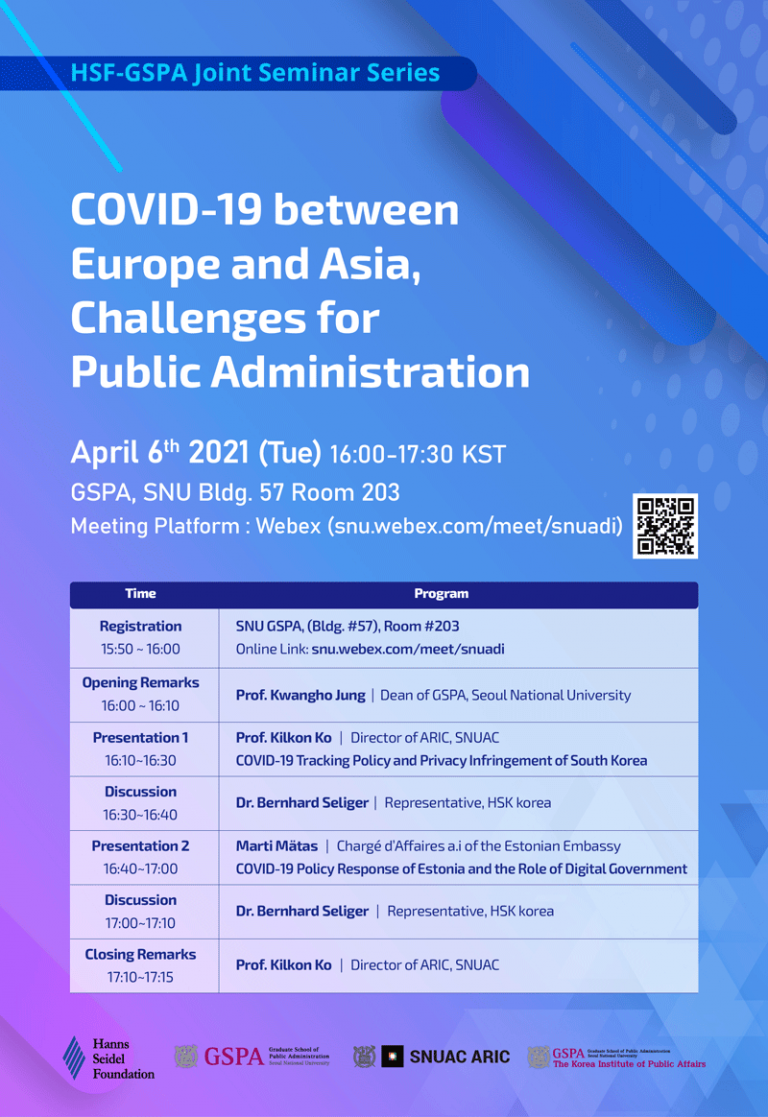COVID-19 between Europe and Asia, Challenges for Public Administration
- Date: April 6th, Tuesday, 2021 16:00 – 17:30
- Location: Room 230, SNUAC (Bldg. 101) / Webex [in English]
Since the spread of the COVID-19 pandemic, almost all aspects of our lives and the modus operandi of the world have completely changed. This was a great challenge, especially to state governments, since fast response, bold actions, and efficient communication with citizens were required in the unpredictable situation of a pandemic. In such a situation, if government policy is not implemented at the right time or if the citizens do not abide by the policy, its effectiveness is compromised. Meanwhile, the government’s lack of response can be balanced out with active measures of the civil society.
The joint seminar series of GSPA and Hanns Seidel Foundation (Korea Office) seeks to focus on a global and multidimensional context. A number of experts will discuss the roles of state governments and civil societies of Europe and Asia, and compare the risk management systems of European and Asian countries for implications. This seminar will be on the government’s COVID-19 tracking policy. In the current situation where the importance of evidence-based policy is rising, the definition of a confirmed case is different depending on the country’s testing abilities, and testing methods as well as tracing and publicizing the information of confirmed cases are different in countries. We would like to discuss what kind of tracing policies are needed.
Kilkon Ko (Professor, GSPA / Director of ARIC)
Marti Mätas (Chargé d’Affaires a.i. of the Estonia Embassy)

